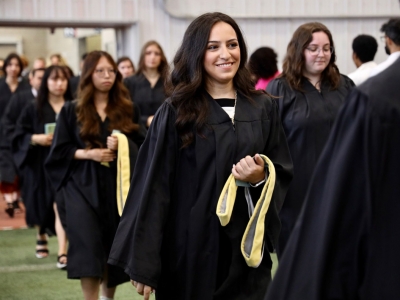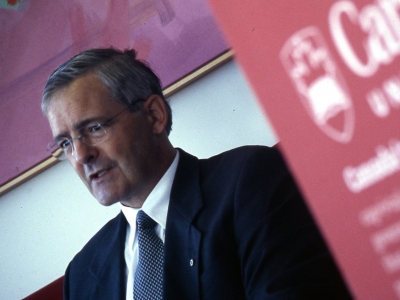Carleton University researchers received almost $13 million in funding from the Social Sciences and Humanities Research Council (SSHRC) and Natural Sciences and Engineering Research Council of Canada (NSERC) to facilitate diverse research benefitting all Canadians, including investigating media concentration, conservation of biodiversity, jury decision-making, and misinformation in the pharmaceutical and agricultural chemical sectors.
“Carleton is proud of its award-winning researchers who continue to push the boundaries of understanding and knowledge,” said Rafik Goubran, vice-president (Research and International). “Carleton’s research excellence is evidenced by our success rates in funding. Our SSHRC funding has more than doubled since 2016 and places consistently above the national success rate, and our NSERC funding increased 37 per cent over the same period.”
Thirty Carleton researchers received SSHRC funding in the form of Partnership, Partnership Development, Insight and Insight Development grants totalling $6 million.
For the seventh year in a row, a Carleton researcher has been awarded a SSHRC Partnership grant. This year Prof. Dwayne Winseck of the School of Journalism and Communications received $2.5 million for his Global Media and Internet Concentration (GMIC) Project. Winseck and his global collaborators will narrow in on what he refers to as a single deceptively simple yet profound question: Are the media – collectively and individually – becoming more or less concentrated?”
Winseck will direct the project and work with a team of 50 academics in 40 countries to analyze some two dozen telecoms, Internet and media industries which encompass everything from mobile phones to search engines, online advertising, television, film and video services, newspapers, film exhibition, digital games and books.
“With countries around the world convening numerous public inquiries and legislative initiatives, such as Bill C-10 in Canada, it is more important than ever that these decisions be informed by the kind of research that is historically and theoretically informed, and empirically-rich,” said Winseck.
As the question is not just one of communications policy, but also economics, politics, business and legal, the team of researchers come from various fields of study and research traditions, including communication and media studies, media economics, several strands of the political economy of communication tradition, platform and data studies, political science, business and legal studies.
36 Carleton researchers received NSERC Discovery Grants, Discovery Accelerator Supplements, Discovery Launch Supplements, Research Tools and Instruments Grants and Subatomic Physics Discovery Grants worth a total of $6.53 million, including Lenore Fahrig for her project that looks at biodiversity and extinction.
“Species extinctions are driven mainly by loss of natural habitats, especially in regions with high native biodiversity,” said Fahrig, professor in the Department of Biology. “Connectivity conservation that focuses on arranging the natural habitat so organisms can safely move between smaller patches of habitat, has been suggested as a means of slowing species losses.”
This emphasis on connectivity stems from research suggesting that species with the ability to disperse among habitats are more likely to thrive in human modified landscapes. However, the link between connectivity conservation and dispersal ability is not straightforward, because dispersal ability is conceptualized in two ways: the ability of individuals to move to distant sites, and the ability of a species to colonize distant sites. Colonizing ability depends on both mobility and the number of dispersing individuals, called propagule pressure.
Fahrig will determine the role of mobility itself in species responses to landscape structure. She predicts that mobility plays a minor role in species responses to landscape structure. If she is correct, then conservation efforts should aim to maximize the total area and quality of habitats, irrespective of its role in facilitating movement.
Media Contact
Steven Reid
Media Relations Officer
Carleton University
613-265-6613
Steven.Reid3@carleton.ca
Follow us on Twitter: www.twitter.com/Cunewsroom
COVID 19 Updates: https://newsroom.carleton.ca/coronavirus-covid-19/messages/
Tuesday, June 15, 2021 in News Releases
Share: Twitter, Facebook



